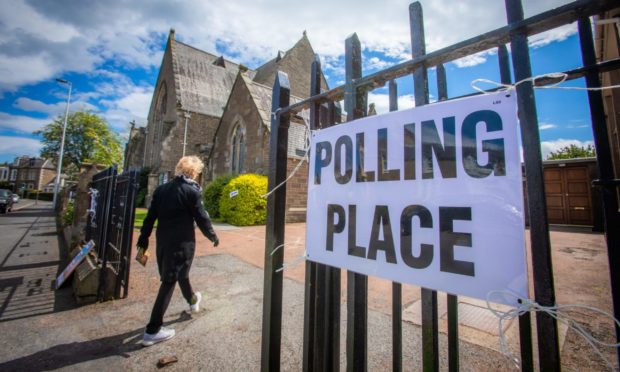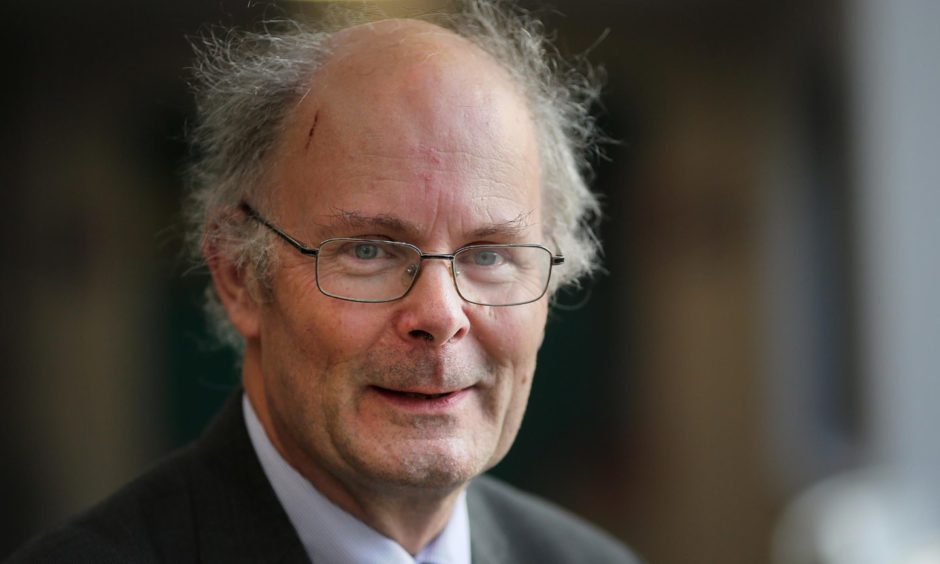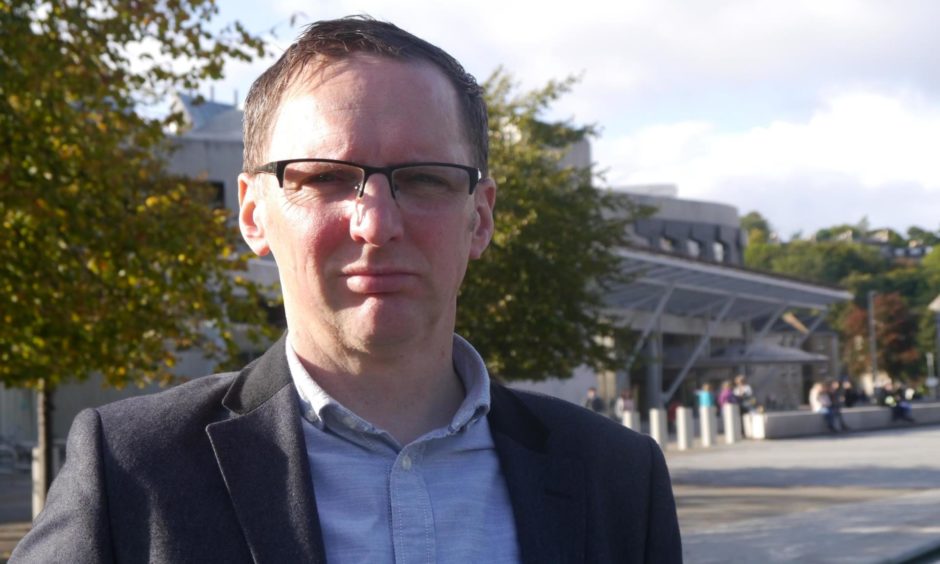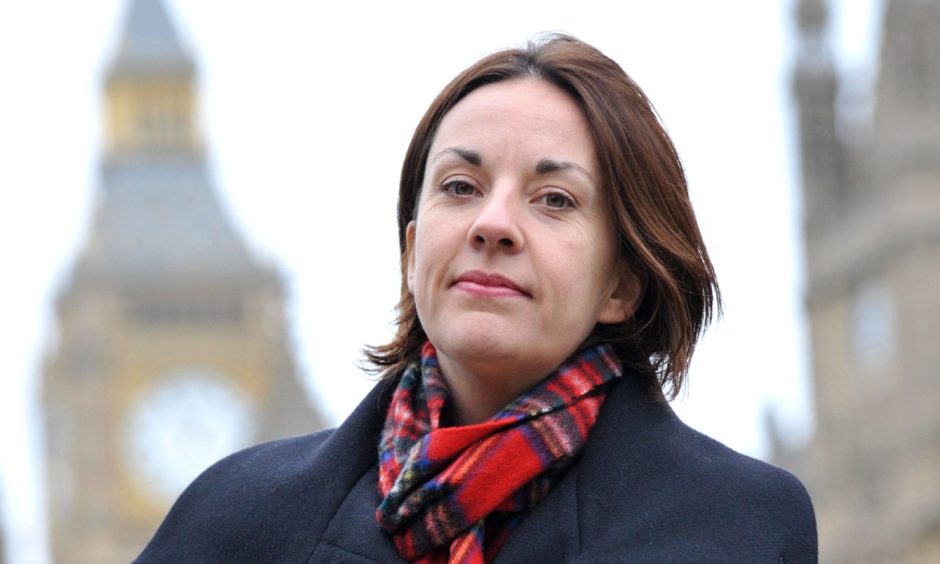The coronavirus pandemic has seen voters exposed to an almost constant diet of daily briefings over the last year and has led many to make their own assessment of the approaches taken by the Scottish and UK governments.
With next month’s May 6 election just round the corner and coronavirus restrictions still in place, it appears convincing that voter turnout could take a knock even if more people opt for a postal ballot this time around.
While voters have seen their lives become smaller over the last year, online press conferences and media briefings have shone a spotlight on the differing communication styles and strategies of each government.
Polling expert Professor Sir John Curtice says “heavy duty face-to-face interviewing” on questions of political engagement have been halted since March last year
This lack of hard evidence makes it difficult to assess whether the general population has become more engaged with politics as a result of the Covid-19 pandemic.
However, Prof Curtice says that issues such as Brexit and the question of Scottish independence arguably engage voters more because the electorate splits over the end result, whereas with the coronavirus pandemic we should all want the government to succeed in its central objective of suppressing the virus.
He says: “I think we don’t know the answer because the pandemic has made it impossible to find out the answer.
“If you’re going to get a decent measure of people’s engagement in politics then you need to be able to do quite heavy duty face-to-face interviewing with random samples.
“Opinion polls are fine but they’re not very good at getting at the less politically engaged section of the population so commercial opinion polls are not a good way of getting at levels of political engagement because they tend to get people that are committed already.
“The problem is that nobody has been able to do any face-to-face interviewing since March so the kind of heavy duty surveys that might give an indication are one of the victims of the pandemic.”
We all agree, at the end of the day, whatever we think about Boris Johnson, we want him to succeed because our lives and our livelihoods depend on it.”
Professor Sir John Curtice
However, Prof Curtice says the pandemic has shown that the “decisions governments make are really, really important” to people’s lives.
But he points out the decisions taken are not ones in which we are arguing about the “objective of what the government is trying to do”.
He says: “We all agree, at the end of the day, whatever we think about Boris Johnson, we want him to succeed because our lives and our livelihoods depend on it.
“Whereas independence is an issue where people disagree about the ends and arguably disagreements about ends are more likely to get people politically engaged than questions about competence.”
Drop in intention to vote
Independent polling expert Mark Diffley said there is “not a huge amount of evidence” that interest in politics has grown significantly as a result of the Covid-19 pandemic.
Polling by Survation this month showed that 65% of people were “absolutely certain” they will vote, which is a drop from 71% in February 2020, just before the pandemic took hold.
When analysing the figures on a scale from 8-10 on intention to vote, with 10 meaning “absolutely certain”, a total of 79% of voters fell into this category when surveyed this month, a decrease from 83% in February 2020.
Mr Diffley says while there is evidence that interest in politics has grown over the last few years, this is mainly a consequence of the 2014 independence referendum, rather than the experience of the pandemic itself.
He adds: “The evidence would suggest there’s been no great uptick in intention to vote as a result of Covid-19.
“We are nearly at an election and there is no great sign that will send a lot more people to the polls.
“The argument has some merit, that we’ve been at home, we’ve not got as many distractions as we have in the past, we’re fixated on Covid-19 and the numbers and the daily briefings.
“I just don’t think that’s translating into enthusiasm for politics or for voting.”
However, the pollster says there is evidence to suggest that the rise in support for independence is in part due to the first minister’s “extraordinarily high rating” in terms of how she is perceived to have handled the Covid-19 crisis.
He adds: “This is an issue that has dominated our lives for well over a year now and sometimes we have taken quite significantly different decisions from other parts of the UK and the first minister, as far as the public is concerned, has been seen to have handled the crisis extremely well.
“There is absolutely some evidence from polls to suggest there are links between people seeing the first minister has done a good job and a rise, albeit a modest rise, in support for independence.”
Mr Diffley also thinks there is “huge potential” for young people to become engaged, as a result of the Covid-19 pandemic and its consequences, but this just has not played out in the polls yet.
“There are lots of ways in which young people will look at the political situation and think, ‘I need to do something about this’ or will want to get more engaged,” he adds.
Election campaign ‘not electrified yet’
Former Scottish Labour leader Kezia Dugdale is director of the John Smith Centre, a think tank that aims to promote trust in politics and public service.
She says there will be “huge public policy questions” coming down the line in the future as a result of the Covid-19 pandemic.
However, Ms Dugdale is “actually quite worried” about turnout in the election and she thinks awareness of the campaign is not that high.
This is in part due to the pandemic, she says, but also a sense that it “doesn’t even now feel like it has really started”.
She said: “It has not electrified yet and I think that’s probably because there isn’t all the traditional photocalls of the past.
“Even the TV debates haven’t really put any heat under the whole debate and got people talking in the way that it might have done in years gone by so I’m quite worried about turn-out in general.”
The former Scottish Labour MSP says there is “plenty evidence that says people can be very politically engaged but not linked being politically engaged with voting”.
Indeed, the organisation she heads up recently compiled research looking at the degree to which people trust their politicians and it revealed women, young people and those on low incomes are the most distrustful of politicians.
Ms Dugdale said: “But that doesn’t mean they don’t have views. Women in particular are far less likely to engage in a political process than men are.
“They will have those views but not necessarily think that voting is going to make a difference.
“There is a big gap between women and men on that particular factor. We’ve got evidence that we published last October that shows women are equally political but they’re far less likely to write to their MP or sign a petition than men are.
“Men are far more likely to see themselves as a potential politician, as somebody that might stand for elected office.
“Women are turning their backs on those traditional forms of engaging in the democratic process and I worry about that.”
This applies more to Twitter and online media where the more people engage, the worse their view of politics becomes, Ms Dugdale says.
‘Punch and Judy politics’
The John Smith Centre was also involved in research that revealed people dislike the “Punch and Judy form of politics”.
Ms Dugdale adds: “That’s really off-putting for people and I’m really interested in that because I want to do more work to take that evidence and convince politicians to change the way they talk and communicate.
“Voters want that policy discussion, they want that longer-term view.
“They want to be excited and believe in the system again rather than just constantly knocking lumps out of each other and constantly trying to knock each other off pedestals, which just leaves the whole vocation of politics in distress.
“People are spending more time online and they’re reading more about politics than they were before but that doesn’t necessarily mean they’re going to vote.”



